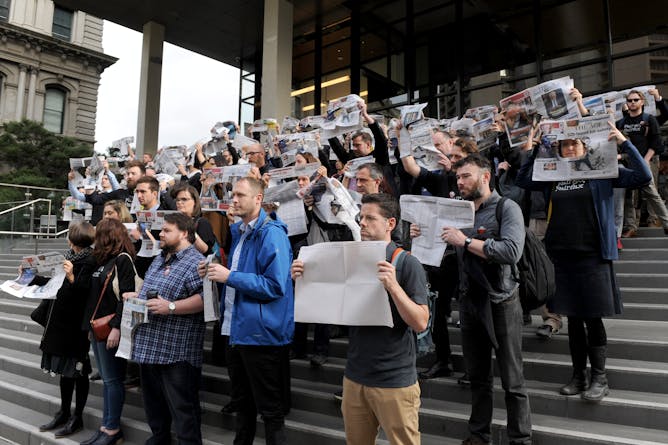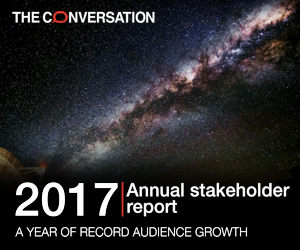| |
|
|
|
|
|
|
| |
|
Editor's note
|
|
This year Helen Garner wrote a Walkley-award winning piece of journalism about a 35-year-old South Sudanese woman who drove into a dam and killed three of her children. If you just read news reports of tragedy it might elicit little more than a gasp, a wave of anger of sympathy, then a flick of the page. But Garner wanted to know more. Her story on Akon Goude was a vital piece of public interest journalism, but it won’t change a single government policy. It doesn’t right a wrong and it doesn’t expose corruption.
I’m mentioning this story because others of this type, let’s call them curiosity journalism, were once much more common in the media. Now media companies rarely have the money to pay for this sort of work. It’s often seen as an indulgence, and a risk.
Why does it matter? Because so much of the shrill and often partisan political debate we see in the media can be linked to an increasing lack of nuance in the way evidence, and stories, are presented to us. Stories stripped of context, without a clear explanation of the background, without a clear understanding of the key characters.
Clean information is as important to democracy as clean water is to health. But clean information is not just facts. Facts are apt to mislead and clean information requires journalists who are committed to providing a full picture. This is where The Conversation makes a significant, and not terribly well understood, contribution.
We don’t try to duplicate the big investigations or the work of literary journalists. But we do try to add to the media ecosystem and deepen understanding. We do this by working with academics to provide reliable information that reports on new research and explains and informs beyond the headlines.
Read more…
|
|
|
Top story
|

Age staff protesting job cuts earlier this year.
Joe Castro/AAP
Misha Ketchell, The Conversation
Let’s start with a few things on which we can all agree, chief among them that public interest journalism is a Good Thing. The fourth estate has a crucial role in holding power to account. The big stories…
|
Health + Medicine
|
-
Terry Mulhern, University of Melbourne
Facial flushing when drinking alcohol is caused by an inherited deficiency in one of the enzymes involved in the breakdown of alcohol.
|
|
Environment + Energy
|
-
Heather Neilly, James Cook University
From mistletoebirds, to bush turkeys, to the festively plumaged eclectus parrot, Australian birds can more than hold their own when it comes to embracing the Christmas spirit.
|
|
Science + Technology
|
-
Andrew Glikson, Australian National University
The race may be on to send humans to live on Mars, but is it worth the effort -- and the spend -- when we have our own problems to deal with on Earth.
|
|
Business + Economy
|
-
Jeff Borland, University of Melbourne
Research shows that a few AFL teams have had much more success at drafting players than others. Richmond's recent premiership was in part build on good draft choices.
|
|
Arts + Culture
|
-
James Whitmore, The Conversation
2017 gave us a blockbuster female superhero, radical faerie realness rituals, and the 'frenetic flapping of male genitalia'. Here's what our arts critics made of all that.
|
|
Politics + Society
|
-
Michael Courts, The Conversation; Amanda Dunn, The Conversation
2017 has felt like a chaotic year in Australian politics, and one in which policy progress has been swamped by other distractions. We can only hope that 2018 is calmer and more productive.
|
|
| |
Featured jobs
|
|
|
| |
| |
| |

|
| |
| |
| |
Featured events
|

|
Business School, Dr Chau Chak Wing Bldg, 14-28 Ultimo Road, Sydney, New South Wales, 2007, Australia — University of Technology Sydney
|

|
RMIT University, Melbourne, Victoria, 3000, Australia — RMIT University
|

|
Business School, Dr Chau Chak Wing Bldg, 14-28 Ultimo Road, Sydney, New South Wales, 2007, Australia — University of Technology Sydney
|

|
Esplanade Hotel Fremantle, 46-54 Marine Terrace, Fremantle WA, Perth, Western Australia, 6160, Australia — Curtin University
|
|
|
|
| |
| |
| |
| |
| |
|
|
|
|
|
|
|
|